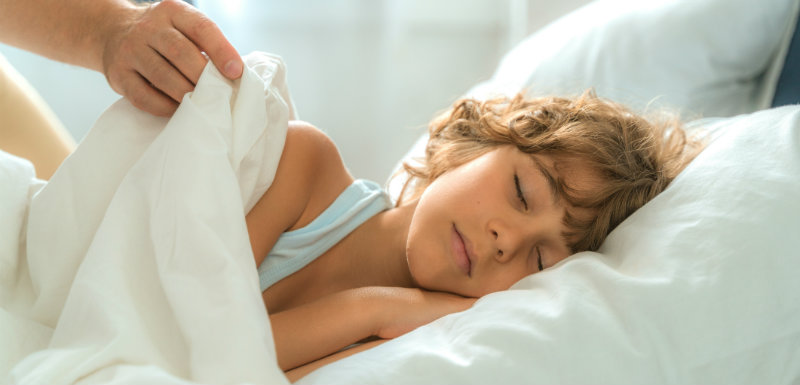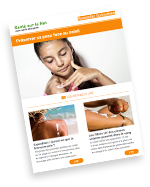It is difficult to know exactly how many people are affected byhypersomnia. This sleep disorder most often appears before the age of 30, usually during adolescence. But all children Can children who sleep a lot be considered to have hypersomnia? What are the criteria for suggesting hypersomnia in a child? Health On The Net has been looking into these issues.

Hypersomnia in children
L'hypersomnia is one of the sleep disorders that can affect childrenThis can be the case from a very young age. Generally speaking, sleep disorders in children are mostly benign, although they can considerably alter the quality of life of the child and those around him. Overall, they affect between 20 and 30 % of children.
While an infant's sleep is physiologically irregular and unstable, certain sleep patterns in children can become pathological and require appropriate treatment. How to distinguish a benign and temporary sleep disorder from a hypersomnia to treat? Not easy, because for children as for adults, sleep is not the same for everyone. Here are some characteristics of hypersomnia in children.
Excessive sleep duration, but not only
Doctors definehypersomnia as a sleep duration that is 2-3 hours longer than the normal sleep duration for a given age. Epidemiologically, hypersomnias are much more rare inchild than insomnia. In addition to abnormally long sleep times, there are other signs that may indicate hypersomnia in children:
- Spontaneous falling asleep during the day;
- A school dropout ;
- Depressive symptoms that set in.
What causes hypersomnia in children? In most cases, it is linked to poor sleep hygiene (sleep deprivation). But other, rarer causes are possible:
- Endocrine disorders, such as hypothyroidism ;
- Respiratory problems, such as asthma ;
- Infections, such as infectious mononucleosis ;
- Psychiatric disorders, such as depression ;
- Taking medication that may affect the duration or quality of sleep, e.g. certain anti-epileptic drugs.
Hypersomnias to be diagnosed and treated
If parents suspect a hypersomnia at their childA medical diagnosis is necessary, as it should not be forgotten that there are little and big sleepers from childhood onwards. Moreover, certain pathologies can affect the duration and quality of sleep and thus lead to symptoms similar to hypersomnia:
- The sleep apnea syndrome ;
- The restless legs syndromewhich can affect between 1 and 2 % of children.
Both conditions must be diagnosed and treated appropriately.
Finally, two types of hypersomnia, unrelated to any other pathology, can develop during childhood or adolescence:
- Narcolepsy or Gélineau's syndrome ;
- Recurrent hypersomnia or Kleine-Levin syndrome.
As with adults, every child has his or her own sleep patterns. However, if this sleep affects the quality of life of the child and his or her family, a medical consultation is necessary to detect a possible sleep pathology, such as hypersomnia.
Estelle B., Doctor of Pharmacy


